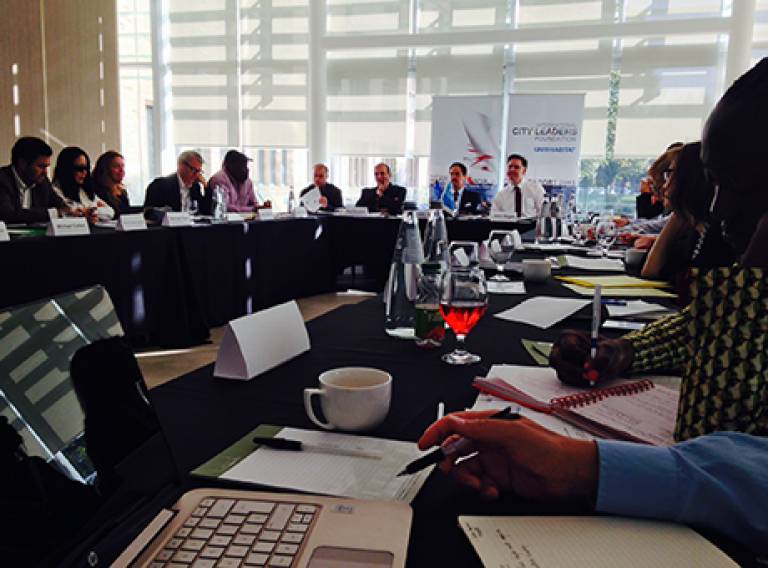Re-imagining planning central to 2015 World Cities Report
14 October 2014

Reinvigorating planning and reinforcing political support for sustainable urban development will be among the key topics in the forthcoming World Cities Report 2015. The report is an important benchmark the lead up to the Third United Nations Conference on Housing and Sustainable Urban Development (Habitat III) in 2016.
The Habitat III conference, organised by the United Nations Human Settlements Programme (UN-Habitat), follows the two previous Habitat conferences that took place in 1976 and 1996. The conference will assess the progress of cities and urban development to date, and map pathways for addressing urban challenges into the future. There are hopes for a Habitat III Declaration, that will be capable of influencing urban policies and decision making at the city-scale.
Internationally, the Sustainable Development Goals (SDGs) will supersede the Millennium Development Goals (MDGs) in September 2015.The MDGs have guided the policies and approaches of governments to poverty and development since the turn of the century. The SDGs are likely to have a greater role in guiding national policies which ultimately will take effect at the local level. As the Habitat III conference will take place after the adoption of the SDGs, its organisers see it as potentially guiding routes for implementation.
According to Vanesa Castan Broto, an academic at the DPU who has been involved in a meeting to kick-start the writing of the World Cities Report 2015, “it’s going to be particularly important because it’s going to set the practical ways to think about the future of our cities.”
The World Cities report aims to create a new urban agenda with a series of guiding principles including the promotion of human rights and the rule of law; equity and equitable urban growth; democratic participation and the involvement of civil society; environmental sustainability and addressing climate change. Vanesa sees it as being “really strongly focused on re-imagining planning and reinvigorating planning as an instrument to build an urban agenda.”
Although it is early to say, this points to an exciting report that could set the tone for further discussions in what will be a vital and fascinating few years in the field of urban development planning and international development.
The World Cities Report 2015 is being coordinated by the International City Leaders Foundation (ICLF), and is due to be launched in December 2015.
 Close
Close

